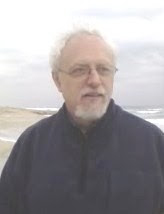
I arrived in Istanbul yesterday (Wednesday) at about 10 a.m. after taking flights from Louisville to Cincinnati, Cincy to New York’s JFK airport, and then a 9 ½ hour ride across the Atlantic and Europe to this Western-most city in Turkey.
Western-most is perhaps an apt, though somewhat misleading, word to use in describing this city. It is of course at the far western edge of Turkey, but more importantly, the city stands with one foot in Europe and the other in Asia. Literally. The modern suspension bridge that spans the Bosphorus links the two parts of the city and thus the two continents.
The Bosphorus is a narrow, river-like body of water that links the Aegean and the Black Sea.
The Bosphorus Bridge serves as a fitting symbol for modern Turkey, and for the man, Fetullah Gulen, whose ideas and work have directly and indirectly brought me to this 98% Muslim country for the first time.
Just as its largest city stands with one foot in Europe and the other in Asia, so this country stands with one foot in history and tradition and the other trying desperately to get a foothold in the modern West. Turkey holds many antiquities and there are signs up at the airport asking tourists not to carry these ancient treasures home with them when they leave.
But Turkey is a country embracing modernity and working diligently to gain admission to the European Union, a membership so far denied this nation. Turkey is so far the only Muslim nation that is a member of NATO, and even though its population is so overwhelmingly Muslim, it has a secular government that fervently strives to keep itself and its practices free of Islam or any other religion. In fact, in the not too distant past when an Islamic political party took legitimate control of the country politically and began a modest agenda of Islamic reforms, the military stepped in and forced the government to resign.
So what happens spiritually when a country and its people struggle with a divided identity that seems so paradoxically self-contradictory? The answer seems to come in a social movement that does something that the West so far has failed to do: moderate the excesses and poisons of modernity with a spiritually based ethical effort that embraces peace and justice.
The answer arrived in Turkey in the last several decades in the form of the Gulen Movement which strives to instill the deepest mystical values of Islam with the healthiest features of modernity.
In my next blog entry I will talk more not only about Gulen, but also about what I have seen in my first 24 hours on the ground.

No comments:
Post a Comment